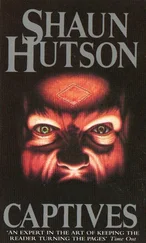Norman Manea - Captives
Здесь есть возможность читать онлайн «Norman Manea - Captives» весь текст электронной книги совершенно бесплатно (целиком полную версию без сокращений). В некоторых случаях можно слушать аудио, скачать через торрент в формате fb2 и присутствует краткое содержание. Год выпуска: 2014, Издательство: New Directions, Жанр: Современная проза, на английском языке. Описание произведения, (предисловие) а так же отзывы посетителей доступны на портале библиотеки ЛибКат.
- Название:Captives
- Автор:
- Издательство:New Directions
- Жанр:
- Год:2014
- ISBN:нет данных
- Рейтинг книги:3 / 5. Голосов: 1
-
Избранное:Добавить в избранное
- Отзывы:
-
Ваша оценка:
- 60
- 1
- 2
- 3
- 4
- 5
Captives: краткое содержание, описание и аннотация
Предлагаем к чтению аннотацию, описание, краткое содержание или предисловие (зависит от того, что написал сам автор книги «Captives»). Если вы не нашли необходимую информацию о книге — напишите в комментариях, мы постараемся отыскать её.
Captives
This is a moving account of a country shaken by communism and anti-Semitism and haunted by recent atrocities, from "a distinguished writer whose vision of totalitarianism is close to Kafka's cloudy menace, universal yet internalized" (Richard Eder,
).
Captives — читать онлайн бесплатно полную книгу (весь текст) целиком
Ниже представлен текст книги, разбитый по страницам. Система сохранения места последней прочитанной страницы, позволяет с удобством читать онлайн бесплатно книгу «Captives», без необходимости каждый раз заново искать на чём Вы остановились. Поставьте закладку, и сможете в любой момент перейти на страницу, на которой закончили чтение.
Интервал:
Закладка:
— Don’t worry. Only tell me what you want. My so-called intuition about your character was something I had figured out. It seemed unnatural that a young person who was finishing high school wouldn’t be able to close a door properly.
— Ah, yes, I tired quickly, too quickly. Gestures didn’t follow me. I remained behind them. I believe that if I’d been left alone or maybe if I’d let myself simply vegetate in some room, I would have forgotten how to write, how to count: I would have forgotten my name and desires. To avoid total vegetation, I imposed obligations on myself in a perpetual panic; to go to the office, to work, to bed alternately with other women — a kind of habit — to shave, to check my address book daily and call someone, to remember my own voice and remember the faces of friends, colleagues, an aunt, a flautist who I was expecting to see after a concert so I could go to bed with her but whose features I forgot as soon as she left. Only, this isn’t really what I’d like to tell your husband. I’d like to ask if he’d allow me to speak in a public square, to confess in front of a crowd.
The words were for Ileana, in fact. Ileana kept quiet. Her husband kept quiet. I kept quiet.
— I’d let you speak.
— You’re relying on their indifference. It would be dangerous to count too much on the indifference of the masses. Their indifference is limited. All their possibilities are limited. Don’t count too much. .
Got frightened, almost screamed, though there wasn’t anything to be heard as he walked by me side — tall and calm.
— I’m not counting on indifference. I know it’s a matter of environment, not absolute. . something transitory, peripheral.
— A matter of environment? Peripheral you say? The mass of comrades gather great mountains of objects, clench heaps under their poor plastic jackets while forgetting that they produce these objects as well, and similarly, they’re blind to how they themselves dwindle in prefabricated dwellings, rarely self-reflecting, and when they do it’s reduced to a “functional” vocabulary, as they say, which means woodenly, in fact. I’m no better than they are. The perpetual chill, disgust with myself and with them, the standardized, uniform, sweaty faces, the roars of the partisans: all these things have gnawed at the weak fabric of my being too. I can’t be blamed for having inherited the characteristics of a parent who’s capable of making perpetual efforts to seem the victor — over and over again. The defeated victor, I mean. The real father has nothing in common with the hypothetical one: the one who couldn’t alter and modify himself or his senses after returning from the crematoriums and the great bazaar of blood; I mean, the one forever afflicted by what they had done to him and his daughters, and by the kind of person he’d made of himself — the one who’s only free now to scatter himself in the flames of a new pyre. Would you allow me to talk to them — those who might want to listen — about this hypothetical parent of mine?
Ileana wasn’t answering. I was captured by my own defiant words. It was better not to look around. The sick man listened silently and made no reply.
— Maybe you’d allow me to say anything whatsoever, in order to prove that anyone can say anything, but then you’d install some articulate militant, a dime a dozen in these heroic times, on a platform nearby: a militant with the same qualities that I once possessed. He’d point toward this city in a sweeping gesture, which was formerly so miserable, but modernized now: with hot water, cold water, theaters, institutes, industrial complexes, the population doubled, and the water of the river suffocated by lye and sulfur. I mean, in school I acquired a solid understanding of the theory of the typical, of the representative, and I once wanted to kill a poor, typical, not at all heroic victim of our paltry confusion and panting subordination. You know, my defeat is personal, a failure that regards only me. When that militant denounces me, the victory will be everyone’s — a synthesis of the great collective triumphs. Statistically I don’t count: I am an anomaly, and the appearances of anomalies are not always interesting — it depends on who selects the results.
Mehedinţi’s big hands rested oppressively on my shoulders. He looked at me severely.
— We’re going to Ileana. Don’t tell her about our discussion. Look, I have the strength to sustain losses.
Yes, we were going to see Ileana. We were in the park. Monica’s case would have interested Ileana: the unfortunate day when I wanted to kill an innocent piano teacher. I rested my hand on a snow-covered bench where, not long ago, I had met Ileana Mehedinţi. Meanwhile, Comrade Mehedinţi had carried on ahead, bored by my silence and slowness. It was imperative for me to go see her — although I didn’t have the strength for something like that. That woman who had rocked me as a baby was now helpless as a child, weighted with the presentiment of death.
I should have told Comrade Virgil Mehedinţi that, like him, I loved her too. Her voice from long ago still lingers in my ears.
• • •
In the end I managed to chase away the phantom from the head of the stairs. The gaze that had returned from the other world to save me had disappeared. It obsessed me no more. In the early hours of the day, I follow the same routine: I manage to drag myself into the convoys that press onward from all sides; I arrive on the hill of the same eternal morning — the cigarette smoke, voices, steps, telephones, typewriters, and the rustle of skirts and tracing paper seem like the hushed whispers of forest rising from the mists of dawn. I take the round white tablet, drink coffee, and begin to feel. The rheumatic pain drips slowly through my bones, starting at the heel, moving through my knees and spine, and then back down again to my heel. I’m blessed with the misfortune of seeing Mişa, who follows my every move, which is what he was trained to do.
For a long time I’ve had a letter in my briefcase that I’ve put off opening — from before Donca turned into a slut: the letter of a whore, who finally found courage to become one. Even though she’s my sister, it doesn’t horrify me. On the contrary, it might bring us closer together because, after all, I was as bad as a whore — I mean, who isn’t? What the hell. I’m still attracted to young people, I want to understand them, even if it’s hard for me to adopt their frankness, their hunger for the present, the effectiveness of their affective operations. . no, affective isn’t the right word. I was therefore afraid to open her letter, because she wrote it when she didn’t yet realize what she was becoming: she was in a stupid phase when shamelessness kept feeding on illusions. She’s going through another phase now, the equally disgusting phase of reconsideration. She’s picked up her university studies again, grinds away day and night, and doesn’t leave the house. Tomorrow, I’ll see her among the leading students in her class and a model of morality — which will be nothing less than jaw dropping, no?
One day I got a call from the music professor I sometimes met — to listen to new stories and complaints. Her desire to cry was inexhaustible, and I realized that she only wanted to seem sentimental and stupid to make fun of those who wanted to torment her, and this game contained hidden, masochistic pleasures: to be blunt, the joys of humiliation. This idea interested me, actually, and, using her wonderful voice, she read out some sugary letters to a newly besieged beau. I began to suspect that the letters had been treated with special effects, pushed with verisimilitude to a point where pathos swelled to revenge. She was also writing children’s stories. They were a kind of transposition of her failure to mate, played out in the realm of bunny and squirrel, sparrow and bird fancier.
Читать дальшеИнтервал:
Закладка:
Похожие книги на «Captives»
Представляем Вашему вниманию похожие книги на «Captives» списком для выбора. Мы отобрали схожую по названию и смыслу литературу в надежде предоставить читателям больше вариантов отыскать новые, интересные, ещё непрочитанные произведения.
Обсуждение, отзывы о книге «Captives» и просто собственные мнения читателей. Оставьте ваши комментарии, напишите, что Вы думаете о произведении, его смысле или главных героях. Укажите что конкретно понравилось, а что нет, и почему Вы так считаете.












